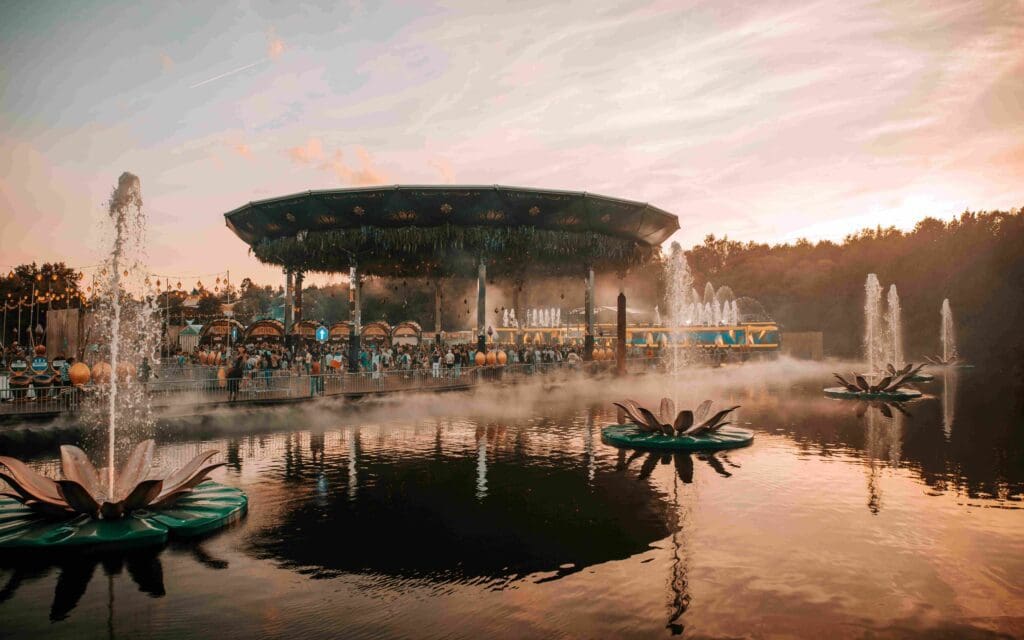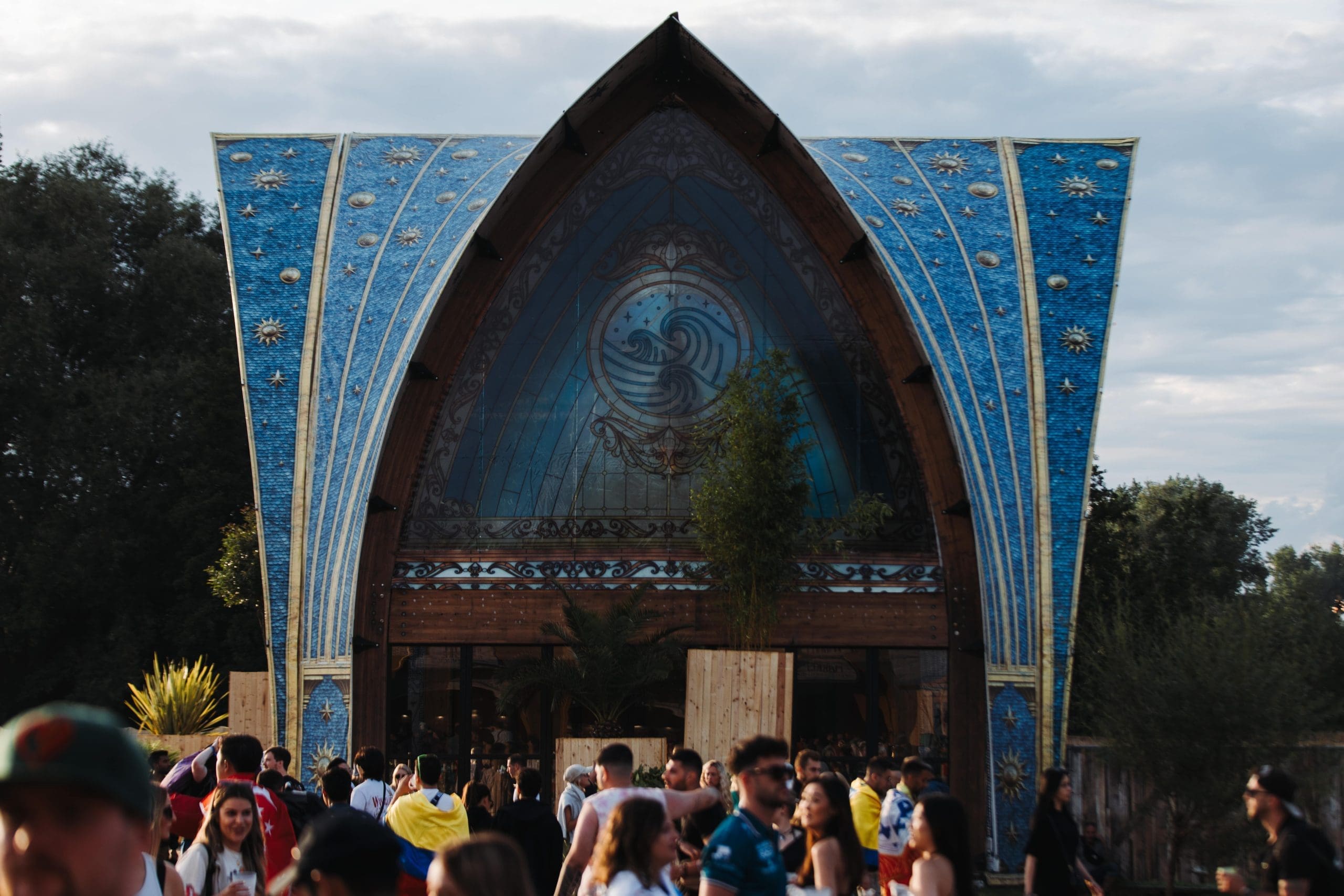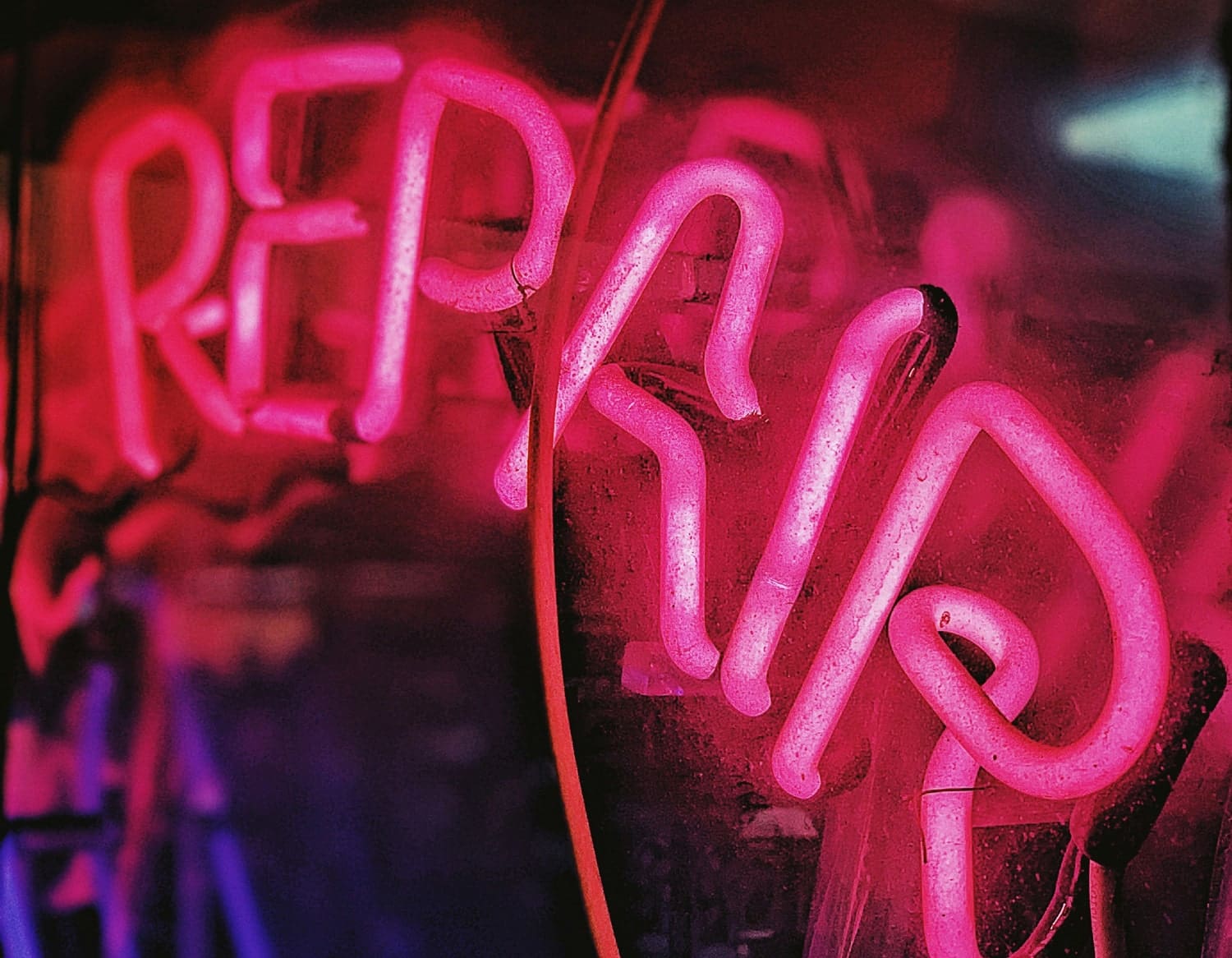In an era marked by increasing environmental challenges, the importance of sustainability is undeniable. For a decade, Tomorrowland’s ‘Love Tomorrow’ initiative has been at the forefront of this change, instilling values of Responsibility, Nature, Innovation, Health, and Respect into the very fabric of the festival experience.
Building on the comprehensive vision and roadmap unveiled at this year’s Love Tomorrow conference, Tomorrowland is not merely discussing sustainability; it is actively integrating it. With a plethora of ongoing initiatives, the festival is committed to becoming one of the most sustainable events by 2030. Read on to discover the full spectrum of these impactful efforts.
HOLY GROUNDS – creating a festival experience that respects our planet
#1 Drink More Water: Drink More Water believes that the journey to well-being starts with a sip of water. The benefits of drinking water – certainly at a festival – are endless. Mobile water bars and awareness on the digital screens urge festival-goers to drink more water.
#2 Recycle Club: Since 2015 our Recycle Club is reshaping perceptions about waste and recycling. At the Recycle Clubhouse, recycling becomes a joyous experience. The awareness campaigns around the Recycle Club led to the amount of 2000 correctly sorted PMD waste. In return for their PMD bags, campers receive recycle tokens they could swap for drinking bottles, Loop earplugs, socks made of recycled PET materials etc. At the end of the festival, the Club was ‘sold out’ of swappable items.
#3 Calyx bins: In order to increase the amount of correctly sorted waste in general, the Calyx bins were brought to life. The inception of beautiful, clearly marked and easy to use bins, pushed the volume of discarded litter down by a third. In 2023, there were 800 Calyx bins on the festival site.
#4 Recycle backpacks: a bin that moves with the crowd. More than 70 volunteers simultaneously walk along the festival site and collect waste on the go, reducing litter and starting conversations on our collective responsibility.
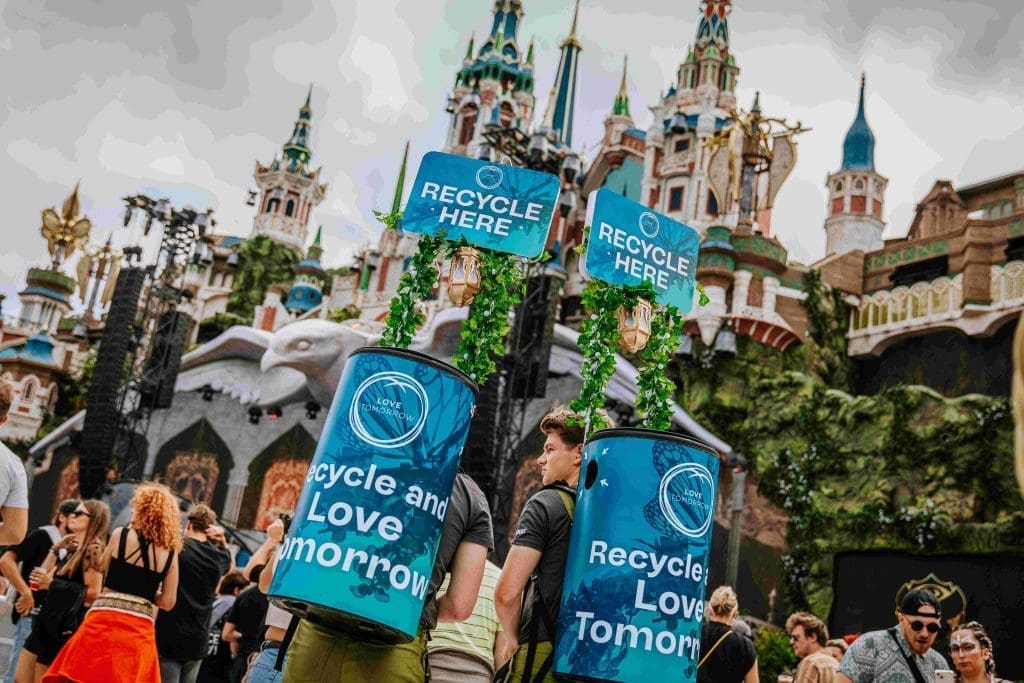
#5 Recycling of cigarette butts: by introducing 300 specifically designed pillars, Tomorrowland has collected 118.763 cigarette butts this year that would otherwise have been thrown in the bin or – even worse – on the ground. In collaboration with Fresh Tray and Tobacycle, these cigarette butts will be recycled to make 1187 new products – mainly ashtrays. Moreover, Tomorrowland handed out more than 10.000 pocket ashtrays among festival goers.
#6 General hygiene: Tomorrowland distributed over 20.000 recycle kits at DreamVille and the crew camping. R&C kept track of the cleanliness of a surface area of 1.200.000 m2, helped by the presence of 1.300 bins at the festival site, 1.000 bins backstage, 1.800 bins at DreamVille and 3.000 garbage bags in the neighbourhood and parkings. 590 people volunteered to be in the Recycle Teams, a number which increases every year.
#7 A conscious crew: the entire crew nailed down their commitment towards a clean Tomorrowland by putting their signature on a wall at the entrance of the crew camping. Tomorrowland distributed 4000 free drinking bottles to all crew who didn’t brought their drinkbottle with them, which could be refilled at 15 water taps backstage. At the crew camping, Tomorrowland launched ‘crew city’ alongside an awareness campaign (including magic tricks) to strengthen the sense of togetherness. The crew site also has a Love Tomorrow section, including information on ‘what to pack’.
#8 River Cleanup: The collaboration with River Cleanup extended from the festival site to the crew camping. On Love Tomorrow Day (12/09/2023), a joint team of River Cleanup, Tomorrowland and professional divers will do a final sweep of De Schorre.
#9 Collaboration with seavents: together with seavents, we made sure our ‘green’ waste (vegetables, fruit, plants,…) will be made into compost to fertilise De Schorre. They are also assisting Tomorrowland in backtracking the green waste from both the festival and the visitors. The lessons learned in 2023 will be used in the communication for 2024.
#10 Reusable cups: In line with a new Flemish law requiring reusable cups as of 15 June Tomorrowland received an exception from the government. While reusable cups were introduced at DreamVille, backstage, and at the Love Tomorrow Conference, they were not used on the main festival grounds. Instead, the festival opted for recyclable rPet cups, thanks to a special exemption.
Two key reasons drive this exception. Firstly, Tomorrowland has a substantial stock of rPet cups, making it unsustainable not to use them. Secondly, the market is currently not equipped for a large-scale shift to reusable cups, both in terms of availability and the capacity for washing them. Moreover, washing reusable cups presents its own environmental challenges, including water and energy consumption.
Despite this, Tomorrowland is committed to responsible waste management. Collected rPet cups are sorted and given a second life through recycling into items such as socks and flags. The festival is working on developing a fully circular system and continues to consult with the Flemish government on improving the reusable cup initiative.
WATER – preserving every precious drop
#11 Sustainable Water Management Plan: the goal of the SWMP is a circular approach to water use at Tomorrowland, a festival that not only consumes water, but also optimises its use and even recycles it. Tomorrowland is currently studying the feasibility of treating wastewater on-site. In the meanwhile, Tomorrowland has started to drain its wastewater for treatment by Aquafin. Tomorrowland is collaborating with the De Schorre 2030 plan, investing in the development of the nature reserve, increasing the possibilities for circular water use in the future.
#12 Other water-related actions: All sanitation sites (except at the Core stage), are now using ‘grey water’ from the ponds at De Schorre. The ‘vacuum toilets’ only use 1 litre per flush.
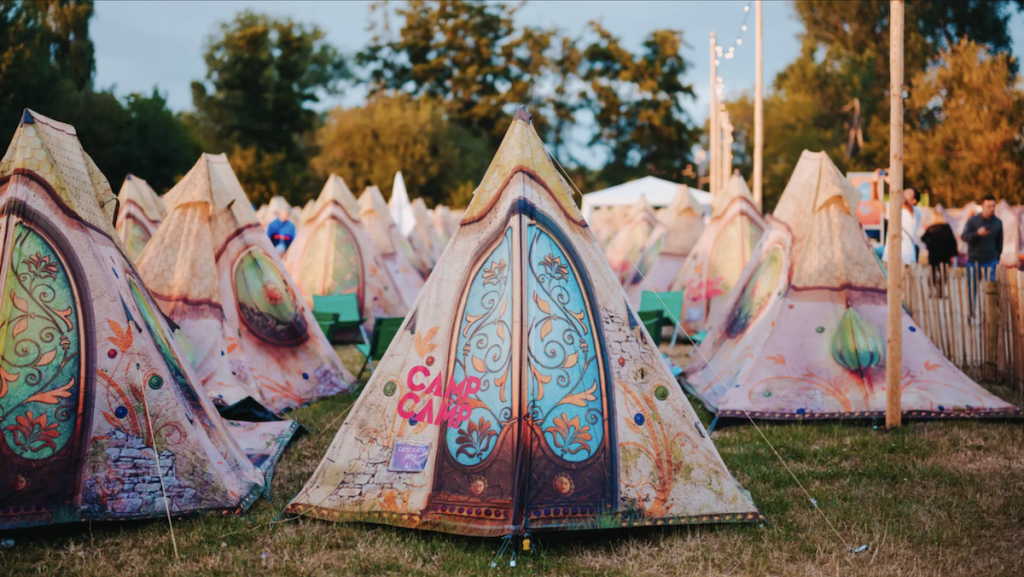
ROUTE 360 – turning waste into value
#13 Camp2Camp: what began as a groundbreaking experiment has now found a worldwide following. In collaboration with the social enterprise Ecoso, Tomorrowland started giving abandoned tents, sleeping bags and camping chairs a new life. They are refurbished, repaired and redesigned in the Tomorrowland look & feel. Camp2Camp has reduced the environmental footprint of the festival drastically, encouraging all visitors to travel light and carefree in the process.
#14 PET & aluminium recycling: Tomorrowland sorted out all PET and aluminium waste, which was collected and will now be used for new initiatives. Research has started in order to repurpose the PET and aluminium waste to Tomorrowland flags next year, if the required quality can be provided.
#15 Compostable plates: at the festival, Tomorrowland used compostable plates for all the food offerings. In collaboration with seavents (read more in #9), the compostable plates were gathered alongside other green waste for compost. With this compost, De Schorre can feed back their soils.
#16 Artificial grass: at the Comforts & Media Village, Tomorrowland introduced a pioneering type of artificial grass, produced in a closed loop. The grass is made of HDPE, a mono-materialistic plastic, which is collected after the event, ground down to flakes and reshaped in artificial grass for a next event. Previously, the artificial grass used at the event would be discarded as general waste, which is no longer the case.
HEALTH
#17 Move to Happiness: at DreamVille, more than 2000 people came to the yoga sessions and more than 3500 people worked out at the gym.
#18 We Care A Lot: Tomorrowland was the co-initiator of the We Care A Lot-campaign, promoting the festival as a safe, welcoming and comfortable space, where no one should feel discriminated, criticised or intimidated.
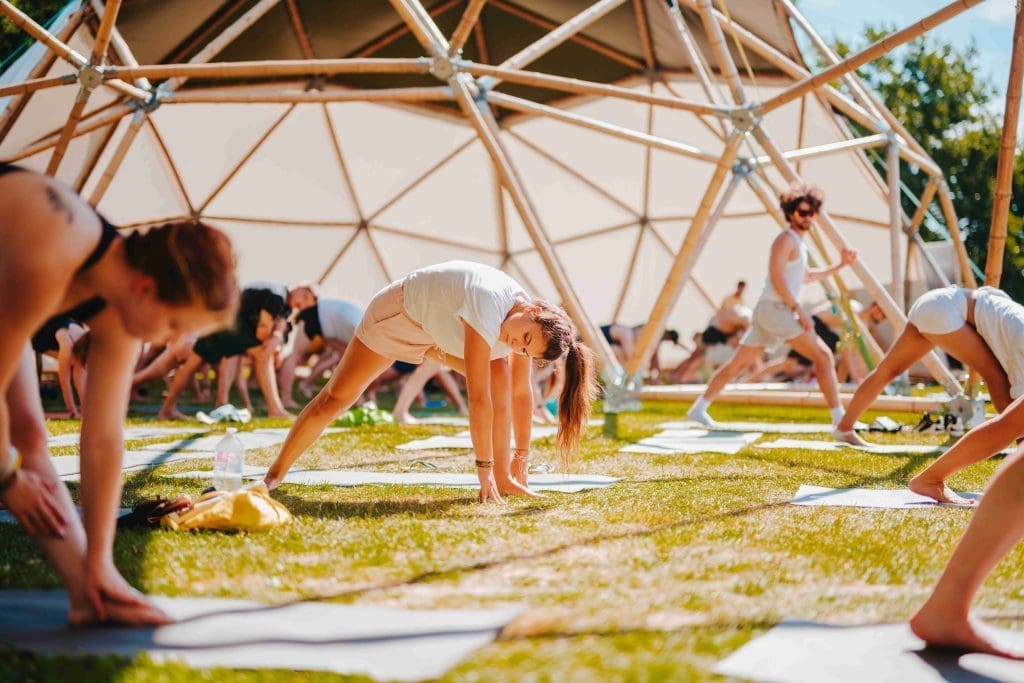
SUSTAINABLE BUSINESS DEVELOPMENT – building tomorrow, today. Sustainably.
#19 Love Tomorrow socks: you can now purchase Love Tomorrow socks in the Tomorrowland store. The socks are crafted from recycled plastic which contains recycled plastic bottles and cups collected at Tomorrowland 2022.
AIR – breathing life into a cleaner tomorrow
#20 Gathering data: This year Tomorrowland is mapping the CO2 footprint of the entire festival. In the next few years, Tomorrowland will focus on the biggest polluters first. Communication on this will follow.
#21 Joining forces with Claire: this Belgian start-up helps Tomorrowland to offset the CO2 emissions via initiatives. Through Claire, Tomorrowland connected with local, sustainable projects and provided CO2 compensation. With that compensation, local farmers can plant new trees and hedges, catching CO2. And this will be further extended to other local organisations and projects in the near future.
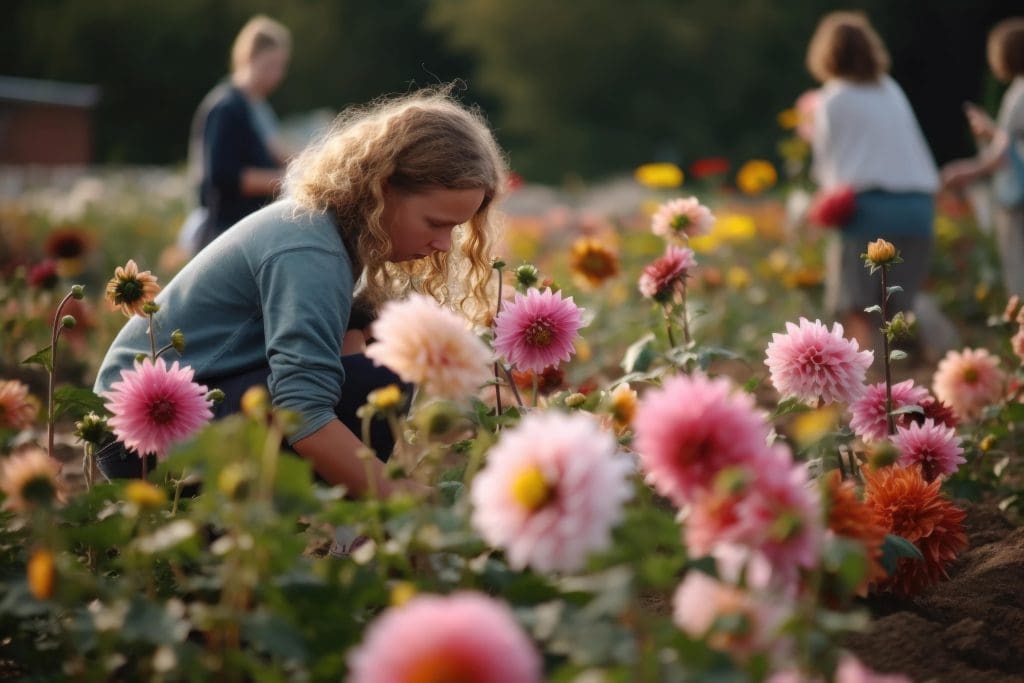
#22 Sheep instead of machines: Parts of the meadows of DreamVille are not mowed with a lawn mower, but instead are used as a pasture for sheep, leading to more fertile ground and fewer emissions. This will be scaled up to a larger terrain in the near future.
#23 ClimateCamp: by collaborating with this Belgian start-up, Tomorrowland will ask their suppliers to log on to a platform, from which they can work together on reaching certain sustainability goals. If you are a supplier interested in collaborating, check out the platform here.
ENERGY
#24 Fixed grid at De Schorre: In an ongoing effort to become more sustainable, Tomorrowland has already invested 500,000 EUR this year to install a partial fixed electricity grid system at De Schorre. Tomorrowland plans to make additional investments to complete the fixed electricity grid system. The ultimate goal is clear: by 2030, the festival aspires to operate entirely on 100% green energy.
#25 Optimising and measuring energy use: every year, Tomorrowland has made incremental changes to the logistics and placement of infrastructure to minimise transport and energy use. In 2023, Tomorrowland has done tests with batteries to absorb peaks in energy use. Additionally, Tomorrowland has taken in-depth measurements of the festival’s energy consumption, providing a good basis for its ambition to reach 100% green energy by 2030.
MOBILITY
#26 Implementation of park & ride for bicycles.
A project that is set to expand in the coming years.
#27 Sustainable aviation fuel SAF: Acknowledging that mobility is one of the largest sources of pollution for Tomorrowland, the festival is proactively addressing this issue. Currently, 44% of visitors who opt for a ‘Global Journey’ pack arrive and depart via air travel. To mitigate the substantial CO2 emissions generated by this, Tomorrowland has partnered with research and travel organisations to explore the feasibility of incorporating Sustainable Aviation Fuel (SAF) into its operations. Moreover, the festival is not just focusing on immediate solutions but is also crafting a long-term strategy. In collaboration with these partners, a roadmap is being developed to guide the festival towards a more sustainable aviation footprint by 2030. The aim is to act as an enabler in the much-needed shift toward sustainability that must be embraced by the entire aviation sector.
JOY & MAGIC
#28 Love Tomorrow Conference – A platform for Collective Awareness: The second Love Tomorrow Conference was more than an event; it was a catalyst for positive change. Hosted at De Schorre, the conference attracted over 4500 attendees and featured 35 speakers across five stages. In addition to a fashion event and a unique job fair, the conference offered a plethora of other experiences. Collaborating with VITO & G-STIC, the Love Tomorrow Conference has been growing consistently. The underlying purpose of the conference is to make a positive impact by fostering inspiration, connection, and unity. It aims to raise collective moral awareness on crucial subjects like sustainability, mental health, nature, and technology.
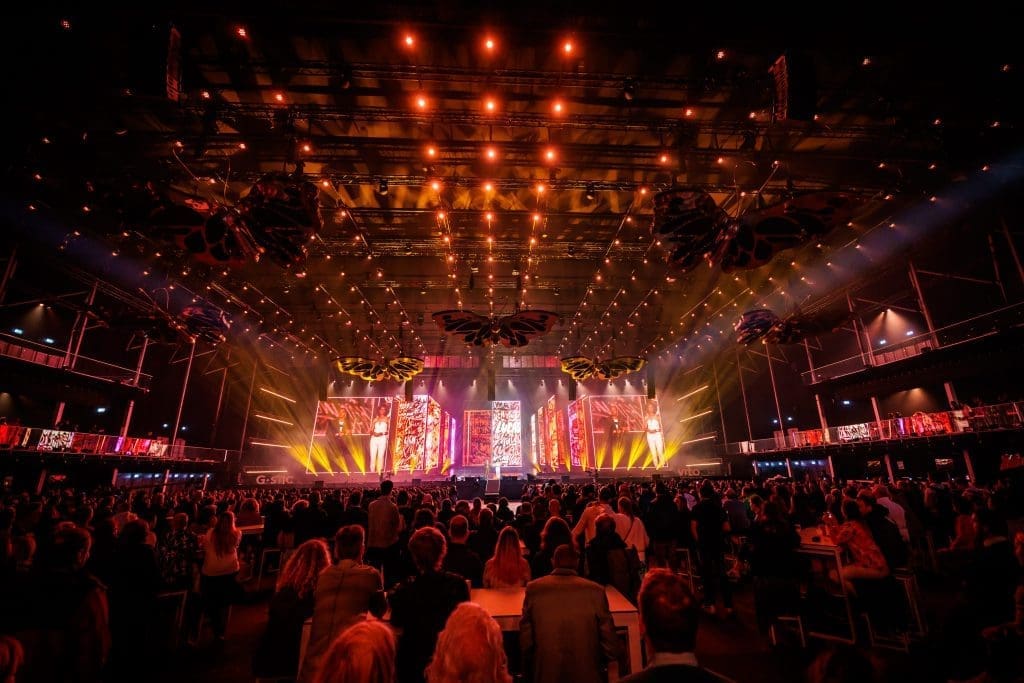
#29 Love Tomorrow Campus – Inspiring the Next Generation: The inaugural Love Tomorrow Campus was organised in May 2023 at the enchanting Bourla Theatre in Antwerp. Designed with a program similar to the Love Tomorrow Conference, the Campus sought to bring the themes of science, magic, and inspiration closer to its target audience: students and young people residing in the city. The ultimate goal of the Campus, much like the Conference, is to inspire positive action through the pillars of inspiration, connection, and unity. It seeks to elevate collective consciousness on vital issues such as sustainability, mental health, and technological advancements, among others.
Through the ongoing implementation, assessment, and refinement of these numerous initiatives, Tomorrowland aims to establish itself as a significant contributor to festival sustainability by 2030. Yet the efforts of Love Tomorrow and Tomorrowland serve as guiding lights rather than definitive solutions. The ultimate transformation lies in the collective actions of the People of Tomorrow. Together, we can create meaningful and lasting change.
